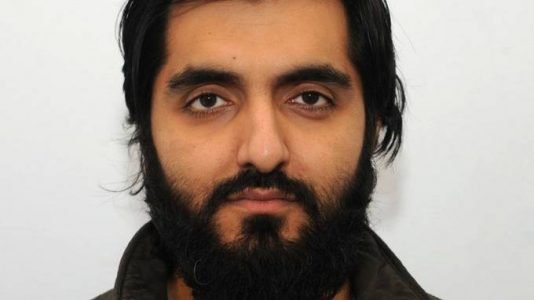
Radicalised chemistry teacher who tried to join the Islamic State freed from jail
A radicalised chemistry teacher jailed for planning to join so-called Islamic State is already back on the streets, having been tipped for release from prison next month
Jamshed Javeed was jailed for six years in March 2015 for planning to travel from his Manchester home to Syria to join IS.
Despite being handed an extended sentence, the Parole Board cleared him for release last year when he was halfway through his sentence, according to a report by the PA news agency.
It comes after the government announced it would push to introduce legislation to lengthen time spent in prison for those convicted of terror offences.
The announcement was made when it emerged Streatham attacker Sudesh Amman stabbed two people 10 days after he was released halfway through a prison sentence.
Javeed was initially thought to be eligible for release in March but officials confirmed he has already been freed from prison on licence.
Justice Secretary Robert Buckland has defended the Government’s push to introduce legislation to lengthen time spent in prison for those convicted of terror offences.
The government wants to set up a specialist Parole Board panel to review cases eligible for release.
A target of February 27 has been set to rush the Bill through Parliament as police chiefs warned that the threat of terrorism is “not diminishing”.
Lawyers are gearing up to fight the government’s proposals, set to be put before the House of Commons next week.
Opponents argue that the rules cannot be imposed retrospectively on criminals already sentenced.
The urgent legislation was put in motion after two terror attacks in three months were carried out by convicted terrorists following their release from prison.
But Mr Buckland said the bill was not “muscle-clenching” or “knee-jerk reaction” to the Streatham attack, or that at Fishmongers’ Hall in November.
The latest case in the controversy, Jamshed Javeed, was poised to travel to Syria in late 2013 but his family hid his passport in a desperate attempt to thwart his plans.
Despite learning his wife was pregnant, the Bolton secondary school teacher persisted with his plan after helping his younger brother make the trip.
But he was arrested hours before he was set to leave the UK.
Police discovered he had researched prominent figures such as the radical clerics Abu Hamza and Abu Qatada, as well as the jihadi group Jabhat al Nusra on the internet.
Javeed insisted he was travelling to support the people of Syria and not join the terror group when he admitted two counts of engaging in conduct in preparation of terrorist acts.
But Judge Michael Topolski QC, when sentencing the 30-year-old, said he was “not satisfied” that Javeed had rejected “Isis’s ultimate aims” and ruled that he posed a danger to the public in the UK and abroad.
He was handed an extended sentence of nine years, six of those to be served behind bars with a three year licence period afterwards.
At the time, Judge Topolski said: “Whether you believed you were fighting in a just cause is irrelevant. The law is clear – this was terrorism.”
Judge Topolski said Javeed remained “adherent to a violent jihadist mindset”.
He added: “You are in my judgment an individual whose potential danger to the public in this country or abroad is clear.”
The Parole Board said his case was “concluded” in June last year.
Offenders are subject to strict licence conditions and can be recalled to prison at any point if they breach them or their risk appears to have increased, the Ministry of Justice (MoJ) said.
Conditions include GPS tags, internet bans, curfews, living in a bail hostel or restrictions on who they meet.
Terrorists on licence are banned from contacting accomplices or others with terror convictions and are “closely managed” by probation, police and other authorities who share information on the risk they pose.
It is understood Sunderland shopkeeper Mohammed Zahir Khan is due to be released on February 28, while around five other terrorists are expected to be let out in March unless the new law is in force.
The government is chasing a target of February 27 to rush the Bill through Parliament.
Khan, a father originally from Birmingham, was jailed for four-and-a-half years in May 2018 for posting messages and material that was supportive of IS on social media.
There are 224 terrorists in prison in Britain, with most thought to be holding Islamist extremist views, according to the latest published figures to the end of September.
As many as 50 terrorists could be freed from jail this year, figures suggest.
Source: ITV





